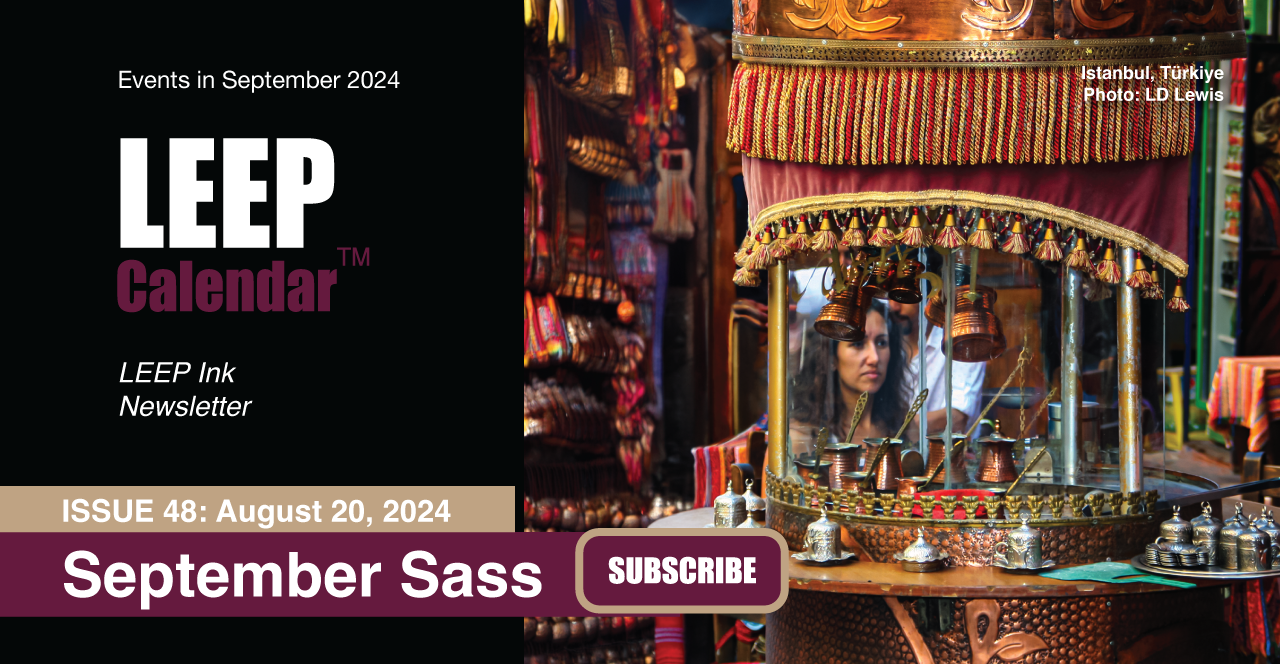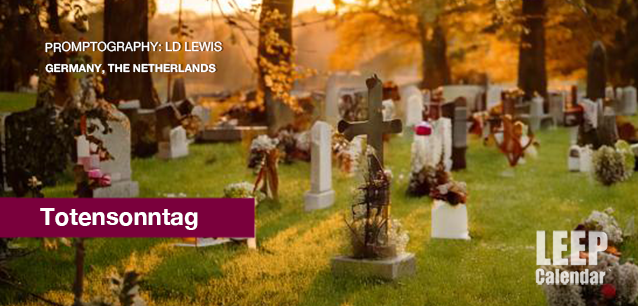 AD
AD
Today is: November 22
Scroll to explore events active on this date.
Additional Events on LEEP
LEEP INK FEATURES

August is Appropos
A toddler playing in the fountain at a park in Santa Fe, New Mexico—Photo LD Lewis. In August, we live through the Dog Days of Summer. It's hot and often humid, and those ...

September is Sassy
Can you hear that sigh of relief from parents worldwide? Yes! September marks the return of students to school, a global phenomenon. Preparations for the ACT and SATs begin earnestly for ...

OOH LA LA, October
October is the busiest month for events, with 5% more happening than in May, the second most eventful month. Sailing enthusiasts will be glued to the finals of this year's Am...
About Totensonntag
Family & Friends , European Countries
Ends: Nov 23, 2025
DESCRIPTION:
HONORING THE DEAD
TOTENSONNTAG
Totensonntag, or "Sunday of the Dead," is a religious holiday observed in Germany and the Netherlands. It is a Protestant day of remembrance for the dead, similar to All Saints' Day in Catholic tradition. The holiday falls on the last Sunday before Advent, usually in late November.
The tradition of Totensonntag, with its roots dating back to 1816, was established by King Frederick William III of Prussia. The king's noble intention was to honor the memory of soldiers who died during the Napoleonic Wars. This historical event has evolved to become a day to remember all deceased loved ones, and it has become widely observed across Protestant communities in Germany. Totensonntag remains a solemn day dedicated to reflecting and commemorating the dead, a tradition that connects us to our past.
Totensonntag reflects on mortality, remembers deceased loved ones, and seeks comfort in faith. It coincides with the end of the liturgical year in the Christian calendar, which is often a period of reflection on life, death, and eternity. The holiday holds deep significance for families and communities as they gather to honor those who have passed away, often focusing on spiritual renewal and contemplation of the afterlife.
On Totensonntag, people visit cemeteries to lay flowers or light candles on the graves of their loved ones, creating a quiet and reflective atmosphere. Churches hold special services where prayers and sermons focus on death, mourning, and hope for eternal life. The day is marked by silence and respect, with many cities enforcing restrictions on public events and activities, such as music, dancing, or festive gatherings, to maintain the day's solemnity.
Totensonntag is not just an important cultural and religious day in Germany and the Netherlands; it's a day that brings people together. It allows individuals and communities to collectively remember the deceased, fostering a sense of belonging and unity. It's a day for reflection on our lives and faith, a day we share with our loved ones and communities.
VIDEOS
SUPPORTING DOCUMENTS
Currently, this event does not have supporting documents.
ADDITIONAL IMAGES
Currently, this event does not have supporting images.
Where would you like to go now?
 AD
AD


/footer-logo.svg)
